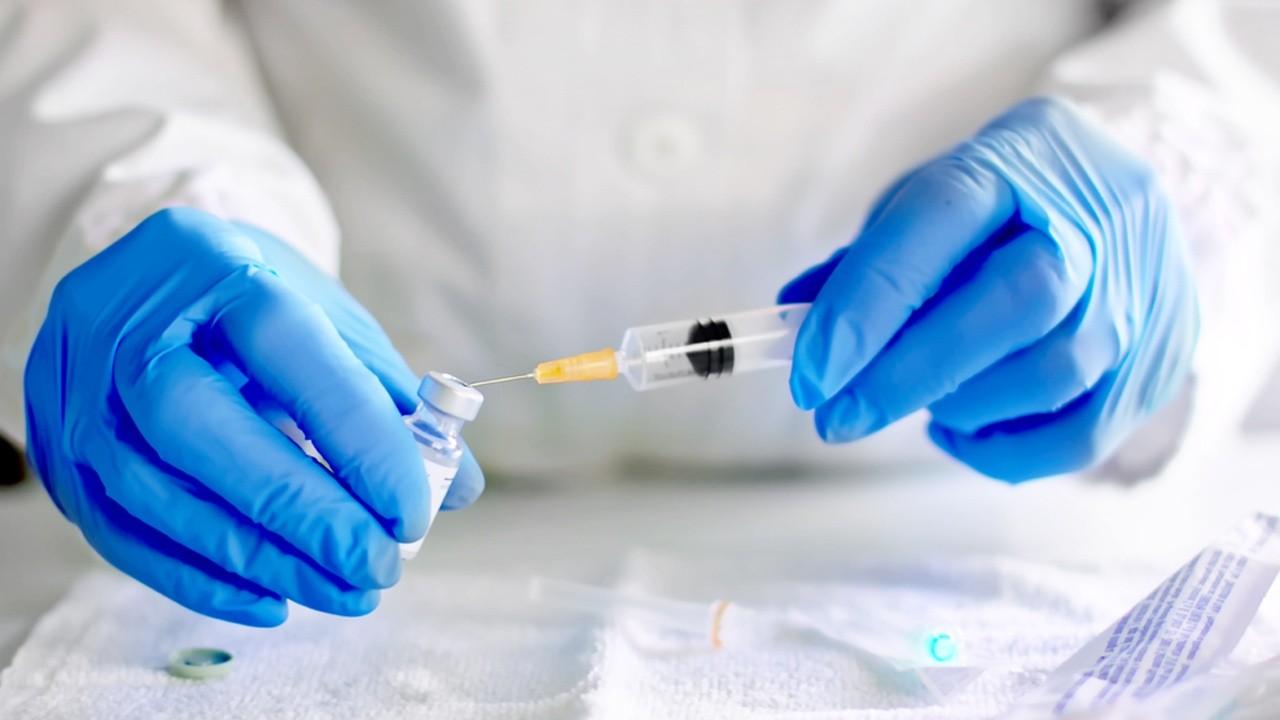AstraZeneca mulls additional trial to further investigate COVID vaccine efficacy: report
Pharmaceutical giant tells FOX Business: 'We are further evaluating the data'
Will some states consider a coronavirus vaccine mandate?
FOX Business’ Kristina Partsinevelos on the possibility of a coronavirus vaccine mandate in some states.
AstraZeneca is considering an additional global trial to further investigate the efficacy of its COVID-19 vaccine, according to comments from the company's CEO Pascal Soriot on Thursday.
Soriot told Bloomberg in an interview that the company would potentially launch a fresh study to evaluate whether a lower dosage of its vaccine would perform better than a full dosage.
"Now that we’ve found what looks like a better efficacy we have to validate this, so we need to do an additional study," he said.
An AstraZeneca spokesperson told FOX Business in a statement that there is "strong merit in continuing to further investigate the half-dose/ full dose regimen."
"We are further evaluating the data and will work with regulators on the best approach for further evaluation," the spokesperson added. "This would add to data from existing trials which are currently being prepared for regulatory submission."
ASTRAZENECA, OXFORD COVID-19 VACCINE UP TO 90% EFFECTIVE IN LATE-STAGE TRIALS
The potential move comes following AstraZeneca and Oxford University's acknowledgment of a manufacturing error that has raised questions about the vaccine's preliminary results.
Oxford University Wednesday said some of the vials used in the trial didn’t have the right concentration of vaccine so some volunteers received a half dose. The university added that it discussed the problem with regulators, and agreed to complete the late-stage trial with two groups.
According to the university's statement, the manufacturing problem has now been corrected.
The statement describing the error came days after the pharmaceutical company and the university described the shots as "highly effective."
The group of volunteers that received the lower dose appeared to be much better protected than those who received the two full doses. In the low-dose group, AstraZeneca said the vaccine appeared to be 90% effective. In the group that got two full doses, the vaccine appeared to be 62% effective. Combined, the drugmakers said the vaccine appeared to be 70% effective.
COVID-19 SHOTS COULD REACH US BY MID-DEC
However, experts question the way in which the results were arrived at and reported by the companies.
They argue that the relatively small number of people in the low dose group makes it difficult to know if the effectiveness seen in the group is valid or a statistical quirk. AstraZeneca said that about 2,741 people received a half dose of the vaccine followed by a full dose, while a total of 8,895 people received the two full doses.
In addition, none of the volunteers in the low-dose group were over 55 years old. Younger people tend to mount a stronger immune response than older people, which could potentially explain why the low-dose group appeared to be more effective, rather than the size of the dose itself.
David Salisbury, an associate fellow of the global health program at the Chatham House think tank, told the Associated Press that another point of confusion comes from a decision to pool results from two groups of participants who received different dosing levels to reach an average 70% effectiveness.
"You’ve taken two studies for which different doses were used and come up with a composite that doesn’t represent either of the doses," he said of the figure. "I think many people are having trouble with that."
MODERNA TO CHARGE $25-$37 FOR COVID-19 VACCINE: CEO TELLS PAPER
The next step for AstraZeneca's vaccine will be published in medical journals that will be provided to U.K. regulators so that they can determine whether to authorize the distribution of the vaccine.
The report will include a detailed breakdown that includes demographic and other information about who fell ill in each group, and offer a more complete picture of how effective the vaccine is.
Moncef Slaoui, who leads the U.S. government's coronavirus vaccine program, Operation Warp Speed, told reporters in a call on Tuesday that U.S. officials are trying to determine what immune response the vaccine produced, and may decide to modify the AstraZeneca study in the U.S. to include a half dose.
"But we want it to be based on data and science," Slaoui added.
The partial results announced Monday are from large ongoing studies in the U.K. and Brazil designed to determine the optimal dose of vaccine, as well as examine safety and effectiveness. Multiple combinations and doses were tried in the volunteers. They were compared to others who were given a meningitis vaccine or a saline shot.
GET FOX BUSINESS ON THE GO BY CLICKING HERE
AstraZeneca isn't the only vaccine that has presented results on its efficacy.
| Ticker | Security | Last | Change | Change % |
|---|---|---|---|---|
| AZN | ASTRAZENECA PLC | 188.25 | -4.85 | -2.51% |
| PFE | PFIZER INC. | 27.05 | -0.17 | -0.62% |
| BNTX | BIONTECH SE | 110.34 | +3.72 | +3.49% |
| MRNA | MODERNA INC. | 41.95 | +0.94 | +2.29% |
Pfizer's latest trial data unveiled earlier this month found their vaccine, developed in partnership with BioNTech, was more than 90 percent effective. Meanwhile, Moderna said its vaccine is 94.5% effective in preventing COVID-19.
CLICK HERE TO READ MORE ON FOX BUSINESS
The Associated Press contributed to this report





















